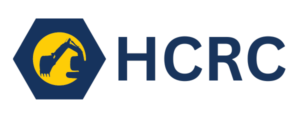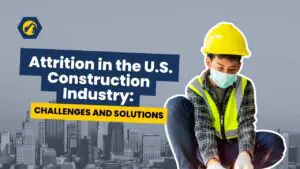Taylor Maurer Senior Managing Partner with Heavy Civil Resource Consultants back here with another 2 MT. Whether you are a seasoned Project Manager, an Estimator, a Project Engineer with a few years of experience, or a Superintendent in the construction industry being prepared for a compensation question and knowing when the right time is to present your desired compensation during a job interview is crucial. It can make or break your chances of landing the job you want. Some may think that the candidate should state their desired salary right out of the gate to “save everyone time” if it falls outside of the parameters of the position or the expectations of the hiring manager. I beg to differ. How is a candidate supposed to know what the ask will be without knowing the details and the demands of the job, the culture, potential risk and benefits of starting with the new company, Sometimes other considerations need to be researched like if relocation to a different area is involved including real estate and cost of living differences. Here are some tips on how to defer the compensation questions until the timing is right to make the ask.
The biggest reason to defer the compensation question is to first understand and communicate how you can effectively solve the issues of the position being vacant or filled by the wrong individual. Desired compensation should not be communicated you have clearly stated and shared examples of what kind of value you can bring to the company.
First let’s explore strategies for deferring the compensation question and then we will dig into the best ways to share the value that you can bring to the company.
For instance, if the interviewer were to ask you, “Well, What are you looking for?”or “How much money do you need?”; Instead of speaking about compensation tell them you are seeking the right culture and environment to continue to grow and advance your career and skills. If pushed it may be helpful to state your current salary and mention that you would consider any fair and reasonable offer. This shows that you are open to negotiation and are not trying to price yourself out of the market. Remember, the goal here is not to reveal your desired salary, but rather to show that you are willing to negotiate and are flexible. During the interview you should really hammer down on what they need from the right candidate. This is your opportunity to see if you can relate your experience and accomplishments to make a firm correlation of how you can solve their problems and succeed in the role. Your highlighted accomplishments are the key to demonstrating the value you can bring to the organization. Focus on the three main areas where you have made a significant impact: 1. Made Money: This might typically include value engineering, negotiating change orders, or developing relationships with owners resulting in negotiated work or additional work outside of the contract,. 2. Saved Money: This could include reducing costs through sourcing differ material suppliers, adjusting schedules to bring projects to completion early, or catching safety issues that could have resulted in a fine or an accident. 3. Solved Problems: Usually there si a reason that a company is filling the position and that is to solve a problem. What that problem is needs to be investigated during the interview process. Stating clearly if you are able to fix these problems will put you in a great spot to get an offer which is the end goal of the interview process, It’s important to note down your accomplishments before the interview. It is also worth noting some of those recent accomplishments in your resume to help you get invited into the interview process. Having these accomplishments noted in preparation of the interview will help you to remember the details and be confident when sharing them. Make sure that your accomplishments are recent, ideally within the last two or three years. It’s hard to impress an employer with something you did a long time ago. Quantifying your accomplishments is also important. Try to attach a number, dollar amount, or percentage to your success. For example, “I saved about $200,000 by using the onsite crushed concrete as backfill aggregate instead of buying and importing aggregate from an outside source” or “I reduced the schedule by finding task that could be done simultaneously therefore bringing the project in 66 days early for a $33,000 early completion bonus.”, another example might be I was able to negotiate an additional $2 million in add on work through my relationship with the owners and identifying work that would need to be redone or added on in the future resulting in approximately $450,000 extra profit. This will help to demonstrate the impact you can have on their organization. Be succinct when sharing your accomplishments, and always be respectful of the interviewer’s time. You don’t want to come across as boastful or arrogant. Instead, you want to show that you are confident and capable. In conclusion, being able to defer the compensation question and highlighting your accomplishments are critical during a job interview. Remember to be open to negotiation, focus on recent accomplishments, quantify your successes, and be respectful of the interviewer’s time. By doing so, you can increase your chances of landing your dream job.






